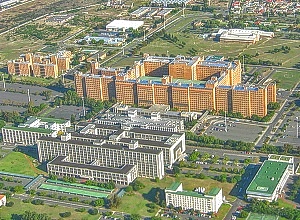Researchers at the Stellenbosch University and Tygerberg Academic Hospital write: SARS-CoV-2 is the third known coronavirus within the past 18 years to cause severe respiratory illness, its predecessors being severe acute respiratory syndrome (SARS) in 2002 and Middle East respiratory syndrome (MERS) in 2012. Although the case fatality rate of SARS-CoV-2 infection is lower than those for SARS and MERS, COVID-19 has caused far greater loss of human life.
Several therapeutic interventions are continuously being investigated, with a multitude of trials underway investigating treatment strategies based on the stage of disease progression. As per the South African (SA) National Department of Health (NDoH) rapid review summaries of 2020, only the correct use of corticosteroid therapy has been shown to have mortality benefit in the management of COVID-19.
The COVID-19 intensive care unit (ICU) at our institution opted to include high-dose corticosteroids as of April 2020. High-dose intravenous hydrocortisone was used because of its general availability and low cost, and was later replaced by high-dose methylprednisolone and ultimately lower-dose intravenous dexamethasone after the provisional data from the Randomised Evaluation of Covid-19 Therapy (RECOVERY) trial became available.
Study details
Corticosteroids in critical COVID-19: Are all corticosteroids equal?
EM du Plessis, U Lalla, BW Allwood, EH Louw, A Nortje, A Parker, JJ Taljaard, BT Ayele, PS Nyasulu, CFN Koegelenberg
Published in SAMJ on 6 April 2021
Abstract
Background
The hyperinflammation seen as part of a dysregulated immune response to SARS-CoV-2 in its most severe form leads to acute respiratory distress syndrome (ARDS), multiorgan failure and death. Corticosteroid therapy targets this hyperinflammation, otherwise known as a cytokine storm. It is the only therapeutic agent to date with a mortality benefit, with clear guidelines from national and international health authorities guiding its use.
Objectives
To compare severity-of-illness indices, survival, length of intensive care unit (ICU) stay and potential ICU complications in patients treated with different corticosteroid regimens (high-dose hydrocortisone, high-dose methylprednisolone and lower-dose dexamethasone).
Methods
In this single-centre descriptive retrospective observational study of a cohort of patients with severe COVID-19 admitted to a COVID-dedicated ICU, we compared patients treated with the three different corticosteroid regimens.
Results
In 242 cases we could not demonstrate any statistically or clinically significant difference in the outcome of patients with critical COVID-19 treated with high-dose intravenous hydrocortisone (n=88) or methylprednisolone (n=46) compared with a relatively lower dose of dexamethasone (n=108). The survival rates were 38.6%, 39.1% and 33.3%, respectively (p=0.68). Patients treated with methylprednisolone tended to have a shorter length of ICU stay (median (interquartile range) 6 (4 – 10), 4 (2 – 8) and 5 (2 – 8) days; p=0.015) and fewer episodes of nosocomial sepsis (47.7%, 32.6% and 48.1%; p=0.01).
Conclusions
Hydrocortisone or methylprednisolone can be given as an alternative to dexamethasone in the management of critical COVID-19, and this is a feasible alternative, especially in resource-constrained settings.

